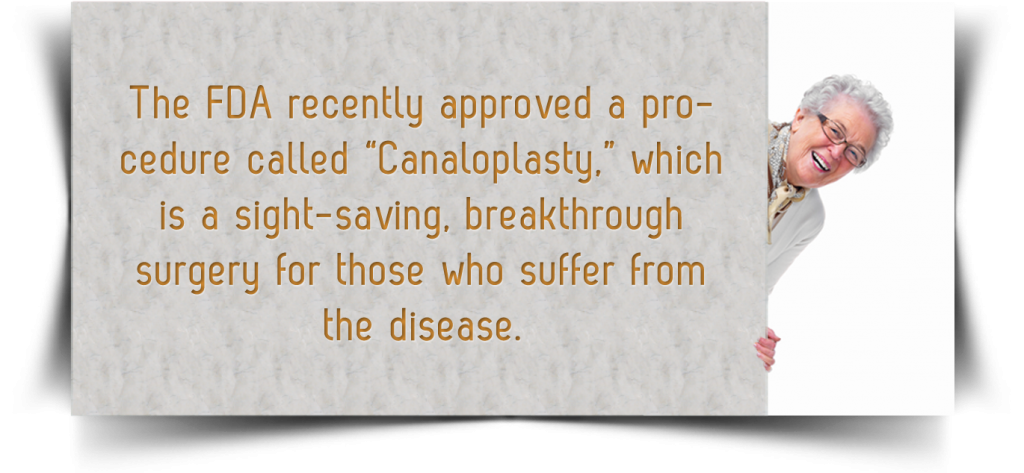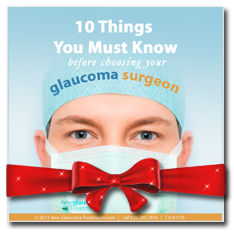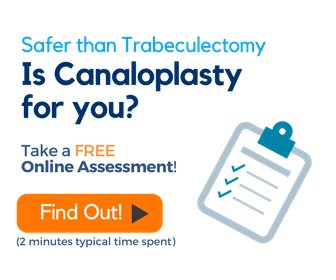Glaucoma is the “silent thief of sight” that literally robs you blind. It is an eye disease that usually goes undetected for years because of the absence of any symptoms. Glaucoma is irreversible and progressive once damage to the nerves of the eye has begun. And it is a glaucoma specialist’s job to prevent this from happening.
What is Required to Become a Glaucoma Specialist?
Glaucoma specialists are doctors known as ophthalmologists. A doctor earns this title after four years of medical school and then undergoing another four years of residency training in Ophthalmology in a hospital setting. During residency, she learns how to diagnose and treat various eye diseases from cataracts, eye infections, to traumatic eye injuries and glaucoma. Finally, she has to pass a professional licensure examination for Ophthalmology in order to be certified by a country or state where she intends to practice.
A glaucoma specialist can be any ophthalmologist who has treated a large number of glaucoma patients and thus has developed the skills necessary to diagnosis and treat glaucoma. Most patients with open angle glaucoma (the most common type) are treated by general ophthalmologists (whether or not they consider themselves glaucoma specialists). For doctors interested in learning how to treat advanced, severe, unusual, or complicated forms of glaucoma there is the option of completing additional training called a fellowship.
Get This Educational eBook [FREE!]
10 Things You Must Know Before Choosing Your Glaucoma Surgeon – Find an exceptional eye surgeon in less time than many people devote to choosing their next car. >> Grab Your Copy Now!
To become a “fellowship-trained” glaucoma specialist, one must complete another year or two of further training in an academic (or research) environment. This formal training is called glaucoma fellowship. Alternatively, some earn the right to be a called a glaucoma specialist by direct apprenticeship under a renowned or respected glaucoma specialist or surgeon. Fellowship training is not required to treat glaucoma and most glaucoma surgeons are general ophthalmologists who happen to treat a lot of glaucoma patients.
Most importantly, a glaucoma specialist must perform a number of actual glaucoma surgeries to be adept as a glaucoma surgeon. Often, those in training will have to first do mock operations on cadaver eyes for mastery of basic eye surgical techniques and eye anatomy. Since half of the glaucoma patients seen in glaucoma clinics will have to undergo eye surgery, it is best if your glaucoma specialist is also a good glaucoma surgeon.
Not All Glaucoma Specialists are Equal …
Not all glaucoma specialists are considered to be adept glaucoma surgeons. Although the majority of them have been trained in traditional filtering surgery called trabeculectomy, more recent and advanced surgical procedures like canaloplasty and viscocanalostomy are performed by only a handful of glaucoma surgeons. The additional training in this field (called “interventional ophthalmology”) gives this select group of glaucoma specialists an edge. Using state-of the art technologies, the trained glaucoma interventionist utilizes very small tubes called micro catheters to open up drainage channels in the eye.
 Through years of experience in glaucoma management, a glaucoma specialist can give you a better overview of your treatment options: from eye medicines to the latest surgical procedures such as canaloplasty. Glaucoma specialists can guide you through diagnosis to treatment. They are the best resource to provide you with first-hand knowledge regarding the nature of glaucoma, including treatment strategies that are safe and suited to your condition. And now with minimally invasive surgical options such as canaloplasty, they also can tailor-fit your treatment according to your lifestyle and personal preferences.
Through years of experience in glaucoma management, a glaucoma specialist can give you a better overview of your treatment options: from eye medicines to the latest surgical procedures such as canaloplasty. Glaucoma specialists can guide you through diagnosis to treatment. They are the best resource to provide you with first-hand knowledge regarding the nature of glaucoma, including treatment strategies that are safe and suited to your condition. And now with minimally invasive surgical options such as canaloplasty, they also can tailor-fit your treatment according to your lifestyle and personal preferences.
Related Articles:
- I Need A Glaucoma Specialist?
- How To Choose The Right Glaucoma Specialist For You
- Why Do Some Good Eye Surgeons Not Take Fellowship?
- What Training Is Required To Become An Interventional Ophthalmologist?
- Are all Canaloplasty Surgeons Glaucoma Specialists?
- 10 Things You Must Know Before Choosing Your Glaucoma Surgeon
- Glaucoma Surgeon Insider (Ideally for Eye Surgeons)

David Richardson, MD
Medical Director, San Marino Eye
David Richardson, M.D. is recognized as one of the top cataract and glaucoma surgeons in the US and is among an elite group of glaucoma surgeons in the country performing the highly specialized canaloplasty procedure. Morever, Dr. Richardson is one of only a few surgeons in the greater Los Angeles area that performs MicroPulse P3™ "Cyclophotocoagulation" (MP3) glaucoma laser surgery. Dr. Richardson graduated Magna Cum Laude from the University of Southern California and earned his Medical Degree from Harvard Medical School. He completed his ophthalmology residency at the LAC+USC Medical Center/ Doheny Eye Institute. Dr. Richardson is also an Ambassador of Glaucoma Research Foundation.



